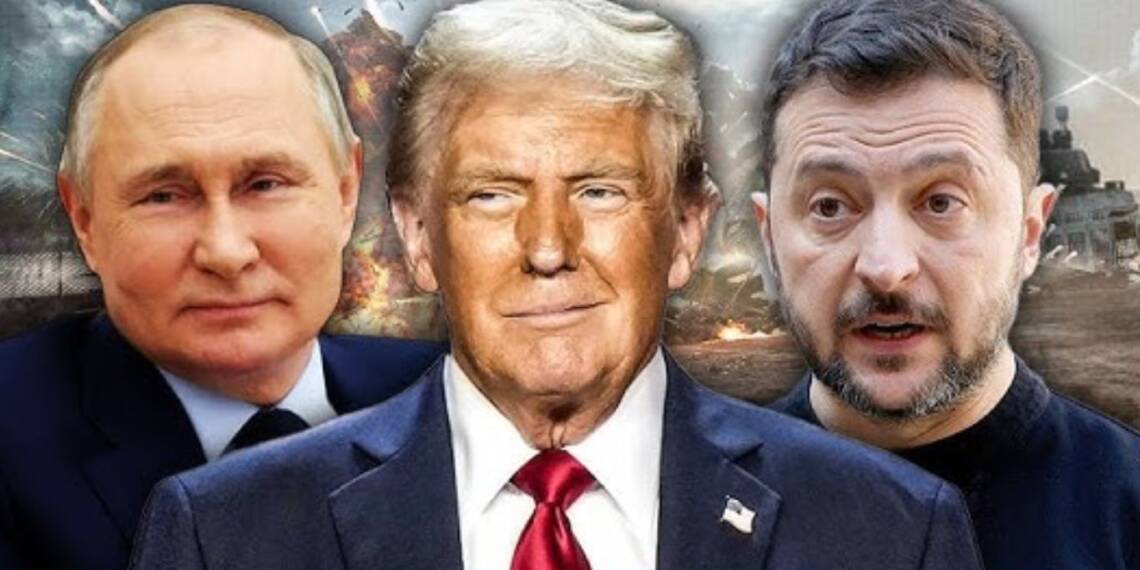In a major development in the ongoing Russia-Ukraine conflict, U.S. President Donald Trump has stated that peace talks will not move forward unless he meets directly with Russian President Vladimir Putin. His comments come as Ukrainian and Russian delegations gather in Istanbul, Turkey, for the first round of direct negotiations since March 2022.
Ukrainian President Volodymyr Zelenskyy arrived in Turkey on May 15, 2025, with a team led by Defense Minister Rustem Umerov. Ukraine’s goal is to reach a 30-day ceasefire and take steps toward ending the war. However, hopes for real progress have dimmed after President Putin chose not to attend the talks. Instead, he sent a lower-level team led by his aide, Vladimir Medinsky. President Zelenskyy criticized the move, calling the Russian delegation “theatrical” and questioning whether they have any real power to make decisions.
Meanwhile, Trump, who is currently touring the Middle East, told reporters aboard Air Force One that peace will not be possible without him and Putin meeting face-to-face. “Nothing’s going to happen until Putin and I get together, okay?” he said. Trump suggested that Putin skipped the talks because he was not going to be there, hinting that meaningful negotiations require both leaders.
U.S. Secretary of State Marco Rubio, who is representing the United States in the talks, agreed with Trump’s statement. He said that expectations for the Istanbul meetings are low and that real progress will likely require Trump and Putin to speak directly.
The United States is now increasing its efforts to end the war between Russia and Ukraine. Trump is reportedly eager to reach a quick deal, showing some flexibility, even suggesting that the U.S. might consider lifting certain sanctions on Russia if it helps bring peace. The bigger goal for Washington appears to be shifting its focus toward China, which many in the U.S. government now see as a more serious global threat.
However, this push for a fast peace deal has raised alarm in Kyiv. Ukrainian leaders worry that the U.S. may pressure them into accepting a “forced peace”—a situation where Ukraine could be made to give up territory, especially in the Donbas region or Crimea, to end the war. Ukrainian officials say this would be a dangerous move that rewards Russia and weakens the international principle that borders should not be changed by force.
From Russia’s side, the current situation may be seen as a chance to lock in its gains without making major sacrifices. The Kremlin may use the West’s desire for peace to claim victory at home, showing Russian citizens that it stood strong against NATO.
So while the U.S. says it wants peace to better manage global security and focus on China, this strategy might come at the cost of Ukraine’s sovereignty. Critics argue that focusing too much on geopolitics risks ignoring justice and long-term stability in Europe.
Many NATO countries are also unhappy with how things are going. Estonia and the Netherlands were especially critical of Putin’s decision not to attend the talks in person. Estonian Foreign Minister Margus Tsahkna called it “a slap in the face,” saying it shows that Russia is not serious about peace.
Back in Turkey, the talks continue without the top leaders present. The absence of both Trump and Putin has left many wondering how effective the negotiations can be.
In short, the road to peace remains unclear. Without direct talks between Trump and Putin, and with rising concerns about a deal that could decide Ukraine’s future, the Istanbul negotiations face many challenges ahead.








